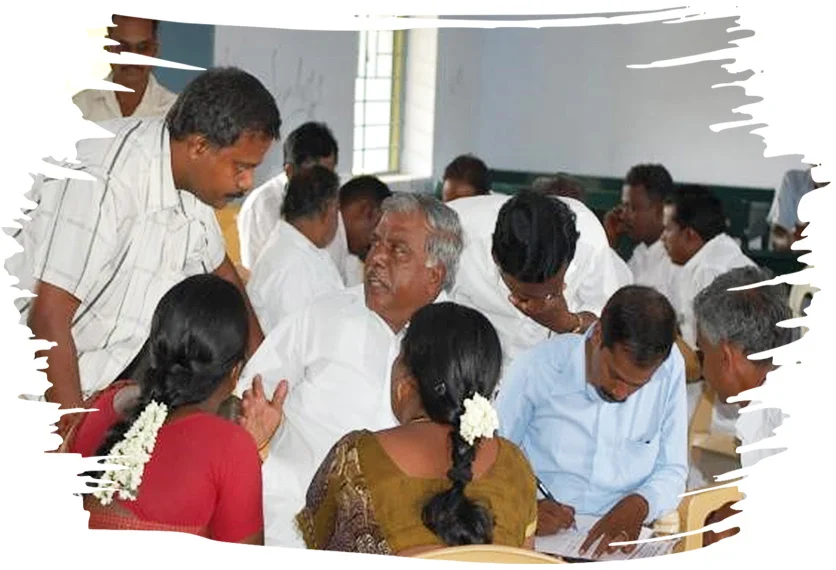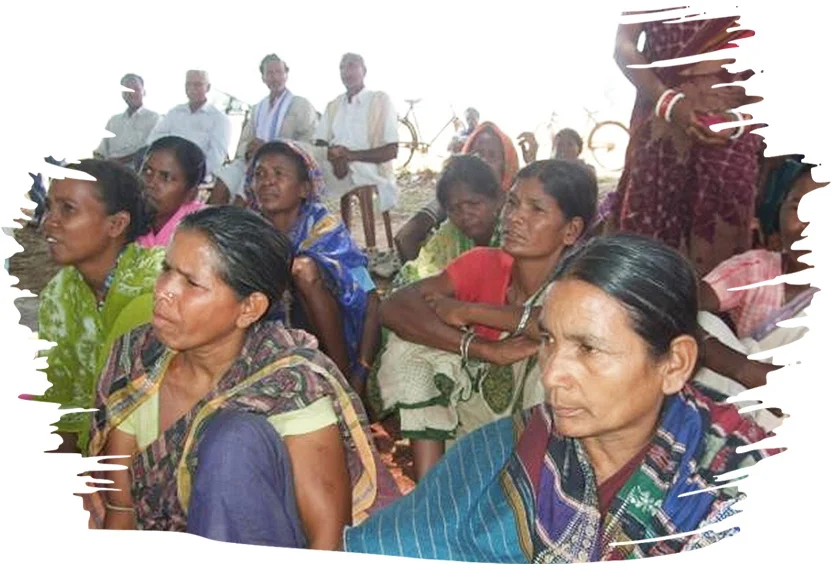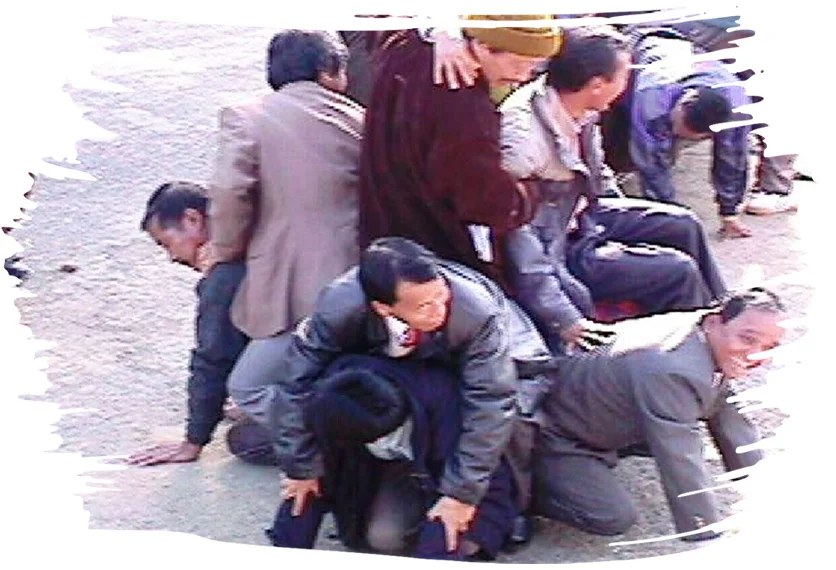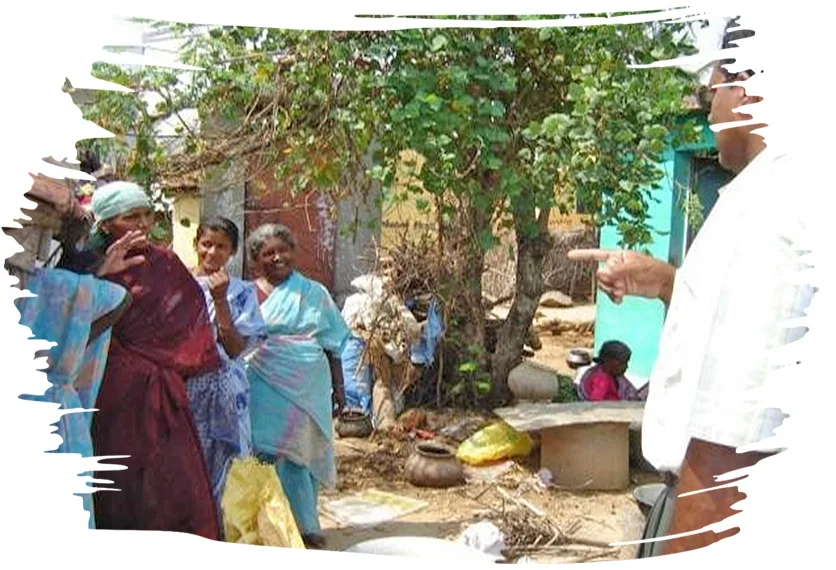Governance
State Backwardness Alleviation programme – SBGF Tamil Nadu State Planning Commission, Govt. of Tamil Nadu
2013-14

The Barefoot Academy of Governance was invited by the State Planning Commission, Govt. of Tamil Nadu to prepare a ‘Perspective Plan for Veppur Block in Perambalur District, Tamil Nadu’. Veppur is one of the most backward blocks in Tamil Nadu. Barefoot Academy of Governance (BA) believes that the backwardness in any region is not only due to economic factors but is due to the lack of or weakness of one or more of six resources namely Social, Political, Economical, Cultural, Knowledge (Human) and Ecological. With this perspective in mind, and through consultations at various levels, BA devised a bottom-up planning process and prepared a perspective plan for alleviating backwardness.
Consensus-building across line departments at the district level (Revenue, PWD, Water, Health, etc) District of Nagapattinam, Govt. of Tamil Nadu
2007-08

The 18-month-association (2010-12) with the district functionaries triggered a vast array of democratisation interventions in education, mother and infant mortality, rural development, agriculture, health and sanitation, and water conservation even in the areas under Maoist influence. The mindset shift became the cutting edge of governance reform in the district and other pockets of the state. The Sundargarh intervention came to be recognised as one of the most significant interventions of the UN sector during the past half decade.
Outcomes:
- Visible Camaraderie between Departmental Heads and Functionaries
- Re-Oriented School Systems adopted as model for State of Orissa
- Multi Department Co-ordinated initiatives in health, water, food security
- Creation of Single Window System to Access Development Schemes
- Increased community participation and contribution to development programmes
- District Convergence Initiative for Livelihood Security
Strengthening District Administration for Good Governance (post Peace Accord) Govt. of Nagaland
2002-03

The `Good Governance in Nagaland’ programme supported by UNICEF was aimed at strengthening District Administration in the post-Peace Accord period in 4 Districts, and establishing a working interface between the formal administration and the village communities which have a long tradition of participatory democracy and high standards of social capital. The intervention wedged into a radical administrative innovation – ‘communitisation’ as an alternative to privatisation, wherein the abundant social capital of the village was revitalised to take over the management of the education and health services in the first phase and subsequently expanding to cover communitisation of electric supply, public works, tourism, and conservation.
Outcomes:
- Police, Administration & Civil Society Collaboration for Youth Protection
- Increased reach to vulnerable groups like patients with HIV
- Improved service delivery due to regular attendance of functionaries
- Impetus to Agenda of Communitisation of Education & Health Services
Redefining roles, navigating conflict and Change Management
Govt. of Tamil Nadu
1998-2001

Outcomes:
- Strengthened Role Perception across Department
- Enhanced Role in DC’s Committee on Social Welfare
- Streamlining of Mid-day Meal following Voluntary Supervision of Staff
- Increased Inclusion of potential beneficiaries in welfare schemes
- Elimination of Manipulated Data Management to cover up inefficiencies



